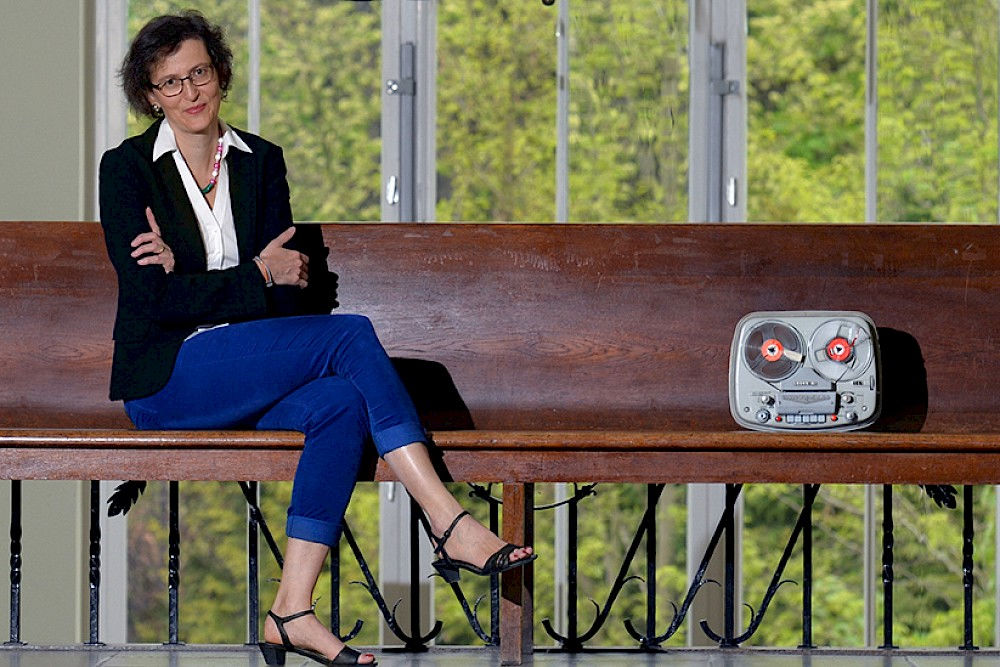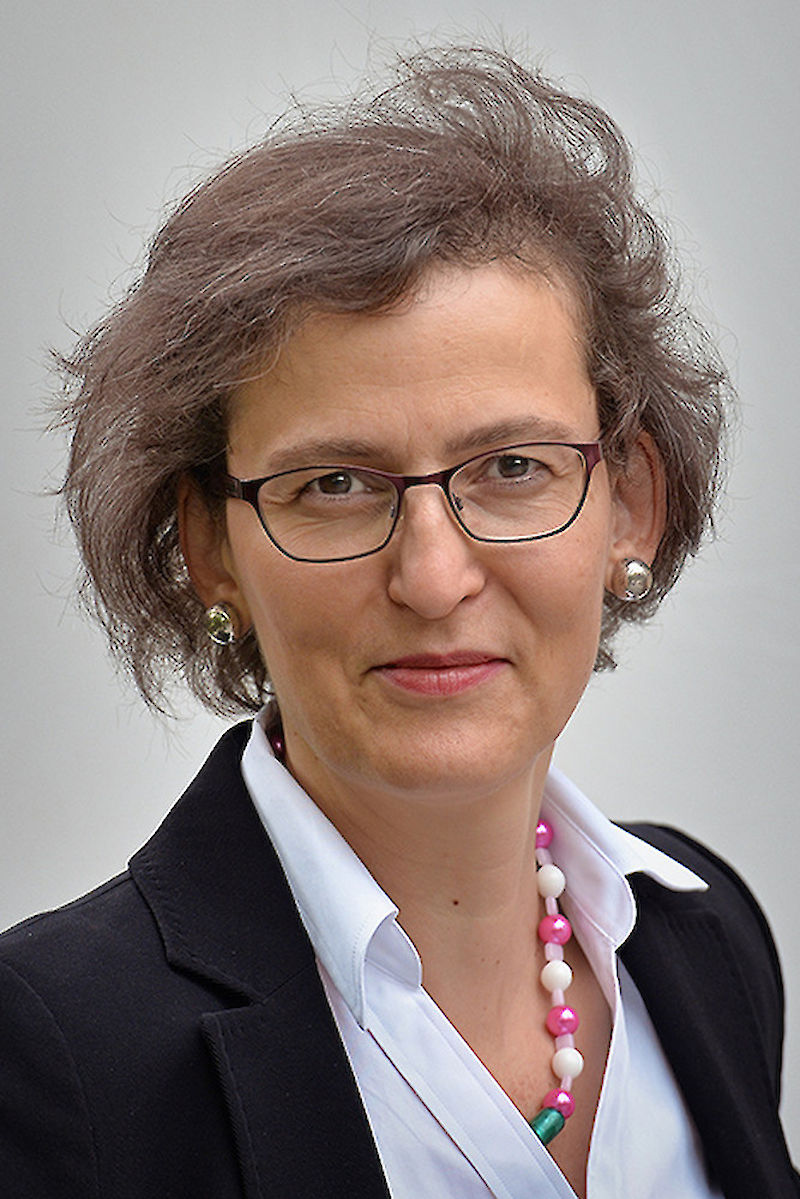One and a half tonnes of valuable files: winner of the Humbolt Research Award brings wealth of data to Halle

The bulky grey box on Prof. Hodenberg’s desk breathes history. It contains an original 1960s tape recorder built by Uher Werke from Munich, a leading manufacturer of recording technology at the time. The recorder is still fully functional. Christina von Hodenberg needs it for her work since it belongs to the oldest surviving extensive German collection of biographical interviews. The collection was recently brought to the Historical Data Centre at Martin Luther University.
The story of how the files - weighing one and a half tonnes - and the 600 tapes got there is just as riveting as the facts about the study itself. The leading role in this out-of-the-ordinary research story is played by Christina von Hodenberg, a professor of history at London’s Queen Mary University. When the renowned social historian was awarded the Alexander von Humboldt Research Prize in 2014 for her achievements to date, she not only received prize money totalling 60,000 euros, she also had the option of using the money for a project at a university of her choice.
It wasn’t just a coincidence that she chose MLU. The historian found many colleagues carrying out socio-scientific research at MLU’s Institute for History. “I deliberately wanted to go to an East German university,” says von Hodenberg, “so that I could get to know present-day eastern Germany.”
She has been working on a project at the Institute for History since September 2014. The project looks at West German generational conflicts of the 1960s and 70s. She brings to the project a new approach: until now historians have always observed this time period from the perspective of the young protestors of ‘68. “The problem with only looking at young people is that it doesn’t explain why society as a whole transformed so quickly,” says von Hodenberg.
3,000 hours of recordings
In her search for suitable sources, the 49-year-old stumbled across a wealth of data thought to have been lost years ago. The so-called Bonn Gerontologic Longitudinal Study, or BOLSA for short, was generated between 1965 and 1981 and was ground-breaking at the time for scientific research on ageing. “It is a minor miracle that the accompanying raw data is almost fully complete,” explains von Hodenberg. “Usually it is destroyed at the latest when the professor who worked with it receives emeritus status.”
The fact that things were done differently in this case is down to the tenacity of one of the actors of the time. Heidelberg psychologist Dr. Christoph Rott, a colleague of BOLSA initiator Prof. Ursula Lehr (who, incidentally later became federal minister for family affairs), used the material to write his doctoral dissertation. Rott didn’t have the heart to part with the mountains of files and approximately 3,000 hours of recordings. Year after year he remained steadfast against much resistance. After von Hodenberg contacted him, Ursula Lehr and Georg Rudinger, a psychology professor from Bonn, agreed to transfer the raw data and the files to Halle on a permanent basis.
The BOLSA study deliberately looked for participants among the lower and middle classes. They gave details about difficult subjects - aspects about ageing, health, dealing with war and death, and even descriptions of sexuality. “The study is still of interest for science today, particularly because it can be analysed from many angles,” says von Hodenberg.
Elfriede Bornschein is online
Elfriede Bornschein was one of the seniors interviewed at the time. Her name is a pseudonym, however her story, which can be heard on one of the tapes, appears to be typical for an ordinary woman of the time. She talks about many things that people at the time of the interview were reluctant to make public. She talks about tenderness, abortions, the death of her husband, conflicts with her daughter-in-law, her money worries and her piety.
A collection was created from this and other narratives, which present-day researchers can use to analyse historical research. Consequently, the aim is now to digitalise the data. To do this, the Humboldt Research Award winner is collaborating with Dr. Katrin Möller from MLU’s Historical Data Centre. A grant proposal is currently being drawn up for the German Research Foundation.
Von Hodenberg expects a funding decision to be made in September. By then she will be back teaching at London’s Queen Mary University. “But I will come to Halle regularly for work meetings.” It is a journey that she won’t find difficult, after all the Krefeld native has a very personal connection to the Halle region. In 1990 the young researcher went to the archives of the Prussian Heritage Foundation which were located in Merseburg at the time. There she met a Germanist from the United States. Today he is her husband.

